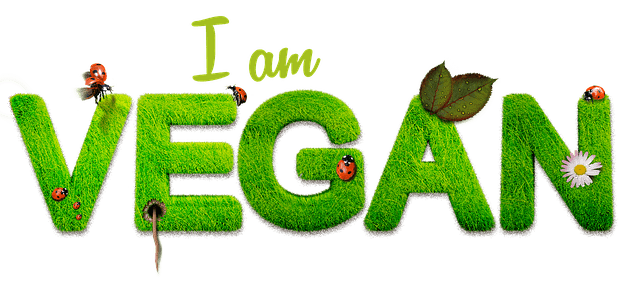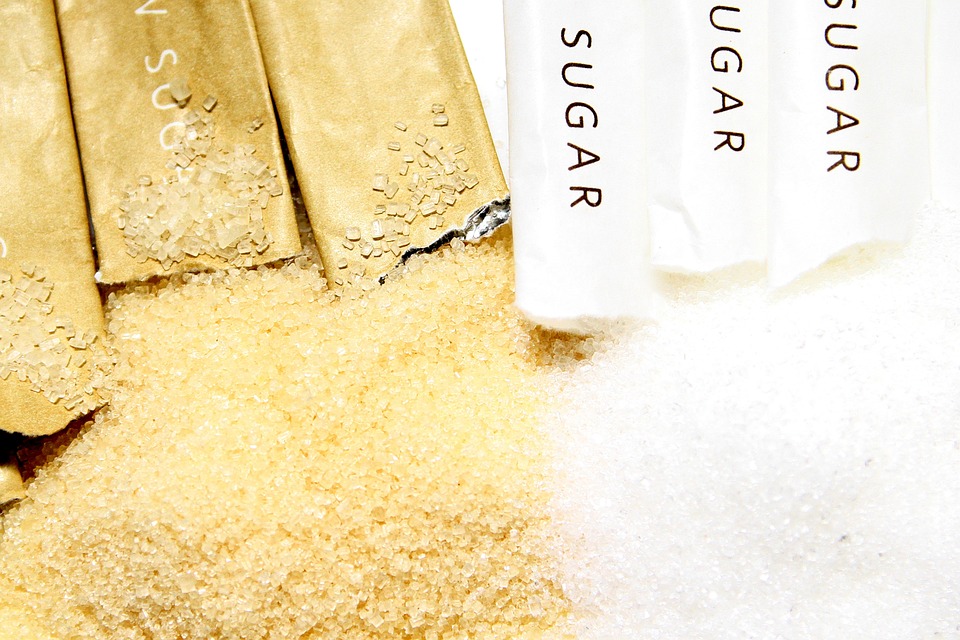How do I know if a product is suitable for vegans? You can learn the components are not vegan and more popular in the food, clothing, cosmetics and other products using this check from vegan ingredients.
Do you feel intimidated by the idea of selecting products that are suitable for vegans in the store? It's time to change that if the reading of the tags has prevented to be vegan until now.
Many businesses choose to incorporate tags vegan in response to the growing demand for vegan products. It is increasingly easy to identify the items vegans immediately, either with a distinctive “Vegan certified” or something like “Suitable for vegans”.
But what if you need to find first the list of ingredients?
What names can have their products are not vegan and what dishes vegans are the best substitutes of your favorites?
These tips will be useful. Get your list of vegan ingredients and your shopping list printable in the following links.
¡Let's go over the basics of the kitchen suitable for vegans!
What can be consumed by vegans
Below is a summary of what can be consumed by vegans. Unlike the vegan products processed, such as cookies or meats of imitation, which may include animal products such as eggs, the first food categories usually do not have a list of ingredients and, therefore, do not require a double check.
- Fruits, including berries, bananas, apples and oranges
- Broccoli, carrots, bell peppers, green leafy vegetables and other vegetables
- Rice, oats, wheat, barley, pasta, bread and other cereals
- Lentil, black bean, chickpeas, tofu and other vegetables
- Nuts and seeds, such as almonds, chia, sunflower seeds, walnuts, and cashews
- Salt, pepper, cinnamon, paprika, chili powder, garlic, ginger, and other herbs and spices
- Drinks: beer, wine vegan, fruit juices, water, tea and coffee
- Other items include vegan cheese, dinner, pre-cooked, Oreo cookies, and potato chips
Forbidden foods for vegans
Let's talk about the articles most important animal and obvious that vegans avoid.
- The meat including lamb, beef, chicken, and other types
- Seafood, such as salmon, tuna and shrimp
- Milk, cheese, cream, yogurt, whipped cream, butter and other dairy products
- Eggs (including poultry)
- Honey (even local or organic)
Unfortunately, the products of animal origin tend not to appear so prominently on the lists of ingredients.
It can be quite a challenge for a new vegan locate in store items approved as a vegan, because it can have many different labels if used only partially.
Ingredients that are vegan
Using our checker vegan ingredients, we examine the products other than food, such as clothing and cosmetics, that can include products of animal origin.
Without a doubt, the ingredients are not vegan
- Anchovy: a small fish preserved in salt or oil
- The bee pollen is collected from the bees and is used in both culinary products such as cosmetics
- Beeswax (E 901) occurs when melting beehives in water and is used as a flavoring in baked goods
- Phosphate of bone (And 542), coal, and flour: derived from animal bones used in the production of sugar
- Fat of butter: dairy product that is used in baking or creams
- Bristles: animal hair hard used in brushes and other cosmetic products
- The calcium caseinate is a stabilizer made of milk protein
- The food additive of dairy origin casein, sodium caseinate (E 469) used in desserts and whitening coffee
- Natural cochineal or carmine red 4 (E 120): Is an insect that is used for coloring foods or cosmetics
- Collagen is a protein of animal origin is used in cosmetic products such as lotions and powders for skin care.
- Confectionery: candy or gum is used a glaze produced from shellac
- Coral: marine life used in dietary supplements
- Feathers used in the clothing or bed linens that are the bottom layer of the ducks
- Estrogen/estradiol is a hormone derived from the ovaries of cows and from the urine of pregnant mares that is present in lotions, gels, and supplements, anti-aging
- The fish oil is a supplement of animal origin
- The skin, tissues, or bones of the animals are used for the manufacture of gelatin (E 441), which is used in the confectionery and desserts
- Ghee: a fat of dairy origin used in the indian cuisine is comparable to butter
- The isinglass is a refiner used in some beers and wines that are made from bladders
- Cosmetics for the hair include the protein keratin, which is also present in helmets, horns and feathers
- The bread, pharmaceutical products and cosmetics, which include the amino acid L-cysteine (E 910 + 921), which is produced from the hair or feathers
- The lactitol (E 966) is a sweetener derived from milk that is used in cosmetics and laxatives
- The milk sugar, lactose
- Lanolin (E 913): a by-product of the industry of the wool used in the mascara and the body lotion
- Lard: lard
- Leather: a skin of an animal used for furniture or clothing
- The enzyme of animal origin called lipase is used in the candy, margarine or cream
- Lysozyme (E 1105): often made from eggs and are used to make wine or toothpaste
- Musk, often used as a base note in the fragrance is a substance released into the gland or sac for the musk deer male
- The myristic acid, which is usually obtained from cows or sheep, it is used in confectionery and beverages
- The oleic acid is obtained primarily from cows or pigs and is used in beverages, ice creams and bakery products
- The pearls of bivalves are used in jewelry
- Pancreatin: acid pancreatic animal that is used in aid to digestion
- Pepsin: helps digestion and enzyme of animal origin that are found in dairy products
- Placenta: an organ animal used in dietary supplements and cosmetics
- Used in salad dressings, bakery products, soups, soft drinks and other products, the polysorbate is usually a blend of ingredients from animal, vegetable and synthetic
- Propolis: a resin produced by bees that can be found in dietary supplements, sprays for the throat and gels for the skin
- Rennet: enzymes of beef that are used to make cheese and custard
- Bees produce royal jelly, which is used in supplements
- The secretion of the insect is used as an agent of lacquered or wood finish is shellac/resin (E 904)
- Silk is a fabric formed by the fiber they produce larvae
- The simplesa is an ingredient in ice cream, sauces, and margarine, which is made from milk and eggs
- The first is the tanned hide of an animal
- Several meals classic british used suet, a solid fat derived from the kidneys of cattle or sheep
- The sebum is a fatty animal sign that is used to make butter, and it is also used in moisturizers to the skin
- Trypsin is a digestive enzyme of animal origin that are used to soften the meat, or as enzyme pastry
- The whey is a byproduct of the milk which is used in protein drinks
- Wool: Hair of a sheep, used for garments of clothing
- albumin is produced from the egg and used in bakery products
Items that may not be vegan
- Activated charcoal: is used to give articles a black tone that can be generated from plants or of animal bones
- Sugar cane: the Use of animal bones to filter certain sugars
- Capric acid/caprylic: used in confectionery and baked products; derivative of both plants and animals
- Agent clarifier is used to remove small particles of liquids; may be of animal origin
- Emulsifier: a moisturizing agent that can come from plants, animals or synthetic materials
- Enzymes are used in food and cosmetics and can come from crops, animals or synthetic sources
- The sources of fat/fatty acids may be of plant origin, synthetic or animal (cow or pig)
- The sources of the flavor enhancers can be vegetarian or animals (such as the extract of meat or fish)
- Folic acid is a nutritional supplement and a fortifying food which usually is fungal or synthetic, although it can also be of animal origin
- Glycerol/Glycerin: used in ice cream, baked goods, beverages, and others. It can be of vegetable origin, synthetic or animal
- Lactase is a nutritional supplement mainly fungal, but it can also be of animal origin
- Lecithin (E 322): it is used in margarine, baked goods, sweets, and other products; it can usually be obtained from vegetables, but it can also come from the liver or of the egg yolks
- Lipids: used in foods and cosmetics, can come from plants or animals
- The egg yolks, or vegetables may contain lutein, which is used as a supplement or food coloring
- The modified starch, which can be found in sauces and sweets, contains oleic acid produced from animals
- When they are used in the chewing gum, shortening, or products honeados, mono-and diglycerides (e471) may come from plants, animals or synthetic materials
- The natural flavors are used in prepared foods and can come from vegetable or animal (meat, fish, poultry, eggs, or dairy)
- In cooking, the term “sweetener nutritious” can be applied to the sugars vegan or honey
- Palmitic acid: used as a flavoring agent, and in baked goods, you can come from animal sources or plant.
- Adjuvant development: it is used in the sugar, juice, wine, and beer; it is derived from animal, plant, mineral, or synthetic materials
- The animals or plants can provide protein and amino acids
- The baked goods and sauces include stearoyl lactylate sodium, which can be obtained from plant or animal sources
- Stearic acid: derived from plants, animals or synthetic materials; it is used in the flavor of the butter or vanilla and chewing gum
- Sucrose: it is used in baked goods, sauces and other foods; it can come from sugar is not a vegetable
- Retinol and vitamin D3 can come from animal or synthetic, is used in supplements, milk, margarine and cereals
- Usually found in candy or chewing gum; the wax can be synthetic, vegetable or animal origin
Tips for reading labels
First deletes the animal products obvious, then removes the items are not vegan as the serum of milk or gelatin, and let the ingredients may not vegan” by the end if you're new to being vegan.
Don't confuse a label vegetarian with a vegan; rather, it seeks articles bearing the label of certified vegan (can be very similar).
The phrase “may contain traces” is only a warning to allergy sufferers and applies to products manufactured in the same factory, so do not worry about it.
You can quickly identify the substances derived from milk, eggs or fish, looking at the ingredients list of any term that is in bold; companies often make it clear if the product contains any type of allergy.
Although some components, such as carnauba wax, lactic acid and cocoa butter, can appear very similar to products made from animals, are actually vegan.
Once you've determined whether a product is suitable for vegans, you can also take the following times in the grocery store without thinking twice. However, the shops change from time to time your prescription, so it is a good idea to go back to check the condition of vegan a product after a period of time.
When it comes to cleaning products, personal care items or cosmetics, it is not only what the product contains, but also of whether it has been tested or not in animals.
While shopping, you can scan the barcode or look for the ingredients and brands through smart applications like Is It Vegan.
The simplest way to ensure that everything you eat is vegan is to stick to the basics: fruits, vegetables, legumes, grains, nuts and seeds.
Can you help us to share?
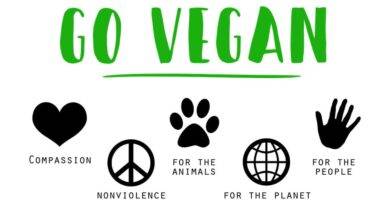
Benefits of Veganism (fourth chapter), other benefits

Vegans against animal abuse

Veganism and Pregnancy
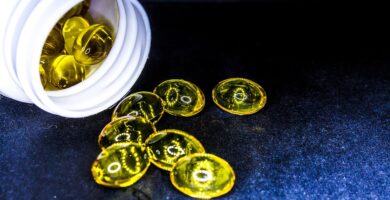
Omega 3 Fatty Acids and Veganism
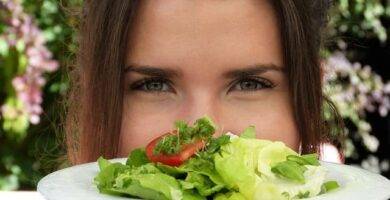
Ways to practice vegan activism
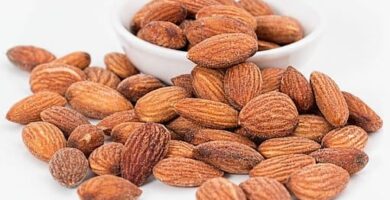
Vitamin E and Veganism

